Dec 9, 2021
Last year, the Gay Lea Foundation awarded SHEAF/ESPIGA a grant to help a remote indigenous community in Nicaragua establish and manage a sustainable agroforestry system.
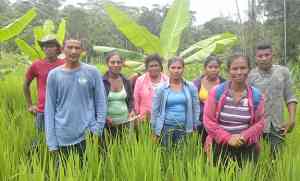
The Siksayari Cocoa Project participants.
SHEAF/ESPIGA Foundation is a Canada-based charity dedicated to assisting the poor, marginalized and underprivileged in Nicaragua by working with local partners to promote holistic development at the grassroots level.
The Siksayari Cocoa Project involved SHEAF/ESPIGA working with the Siksayari community to introduce the non-traditional crop of cocoa and interplant the cocoa plants among beans, avocados and bananas. Planting these crops together will create an agroforestry system that will enhance the existing ecosystem and the sustainability of the crops.
Siksayari is a remote community located in northern Nicaragua, only accessible by river. The closest communities are a two-to-three-day trip by dugout canoes. Farmers grow rice, corn, beans, avocados and bananas for themselves and their community. Any excess crops are sold at local markets. However, prices for these traditional crops are low, and transportation costs are high.
Committed to improving the lives of their community members, Siksayari farmers searched for a more profitable crop to cultivate. After conducting research, they discovered that cocoa could be successfully grown in their region and sought out the help of SHEAF/ESPIGA to help them fund and establish cocoa and create a sustainable agroforest system. The Gay Lea Foundation grant of $4,900 would support the construction of the nursery to grow cocoa from seed, purchase materials and hire a technician to provide technical support for the participating farmers.
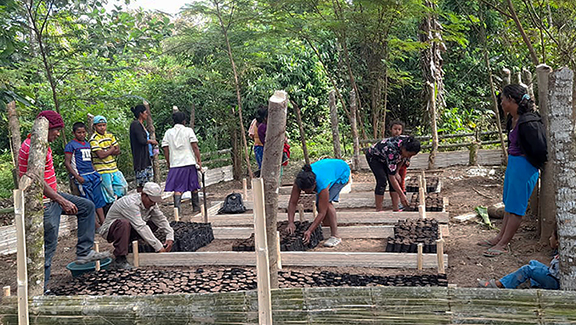
The project participants work on constructing a cocoa nursery. Then, when the cocoa plants grow large enough, the farmers will plant them among the avocados and bananas.
The community leaders chose ten participants to implement the project. They already had to manage their own land and provide labour to qualify for the project.
Each participant received 12 banana shoots and 13 avocado seeds to plant. Planting these crops first at 15 metres apart would provide, in time, shade for the cocoa and nutrition for the community. Bean seeds were also planted to provide food immediately for the community and nutrition for the other plants because bean seeds affix nitrogen to the soil, which is beneficial for the cocoa plants.
By April 2021, the participants had built the nursery and started growing cocoa. The nursery’s location was key to successfully growing the cocoa from seed. The participants had to level the nursery area, uproot tree trunks, prepare the soil for the cocoa seeds and construct a shade structure. Once the cocoa plants are large enough, the farmers will plant them among the avocados and bananas.
“There is an optimism and anticipation among the participants of this project,” says Joe Reed, President of SHEAF/SESPIGA. “The farmers have gained technical know-how on managing a nursery, growing healthy plants, and controlling and preventing pests. In addition, the women who participated were empowered as they worked equally alongside the men.
“On behalf of the community of Siksayari and SHEAF/ESPIGA, we would like to thank the Gay Lea Foundation for its donation to this important project,” says Reed. “We have seen the spirit of the community improve as they work together to develop a sustainable agroforestry system.”

Nov 3, 2025
Gay Lea Foods Co-operative Limited (“Gay Lea Foods”) today announced it has received the PRISM Certified designation from Imagine Canada, recognizing the Canadian dairy co-operative’s commitment to...
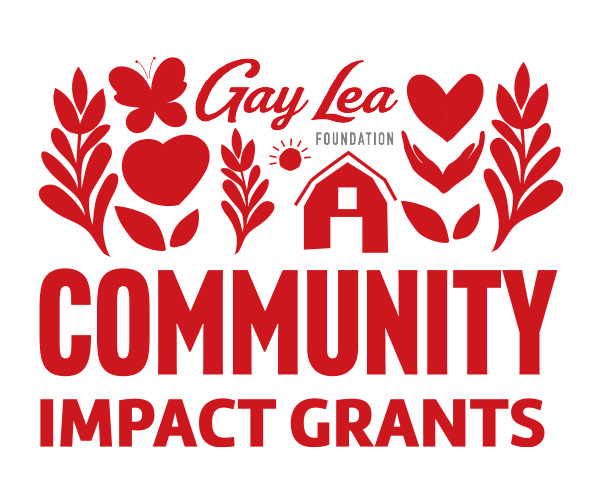
Oct 21, 2025
As co-operatives recognize Co-op Week and the United Nations’ International Year of Co-operatives, the Gay Lea Foundation is proud to announce the recipients of its fall 2025 charitable grants.
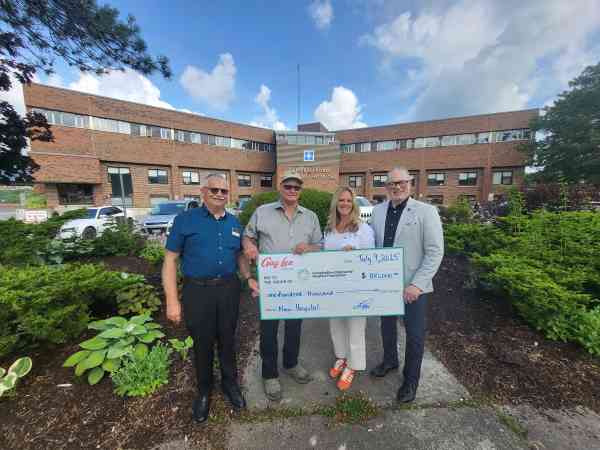
Jun 2, 2025
Spring 2025 grants announced to support health, agriculture, and community well-being projects across Canada and internationally
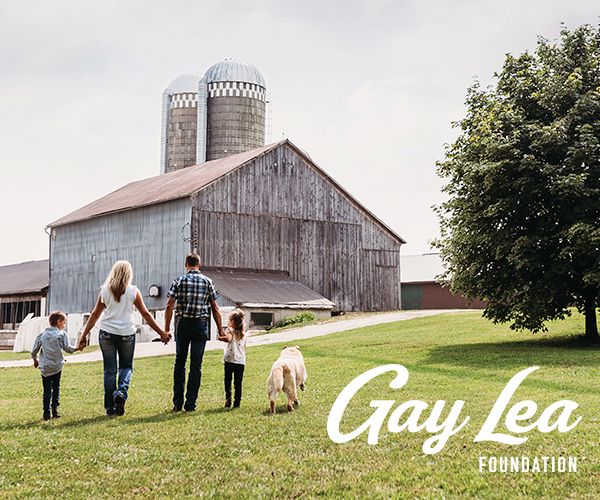
Feb 12, 2025
The Gay Lea Foundation today announced applications are now open for its Community Impact Grants program, supporting initiatives in education, health, wellness, poverty relief and sustainable agriculture...